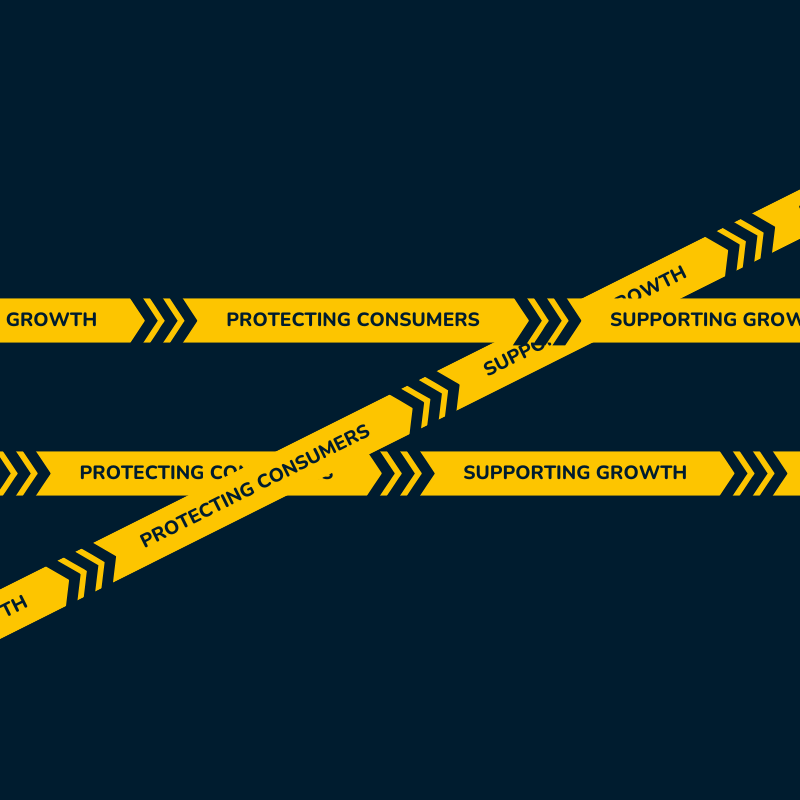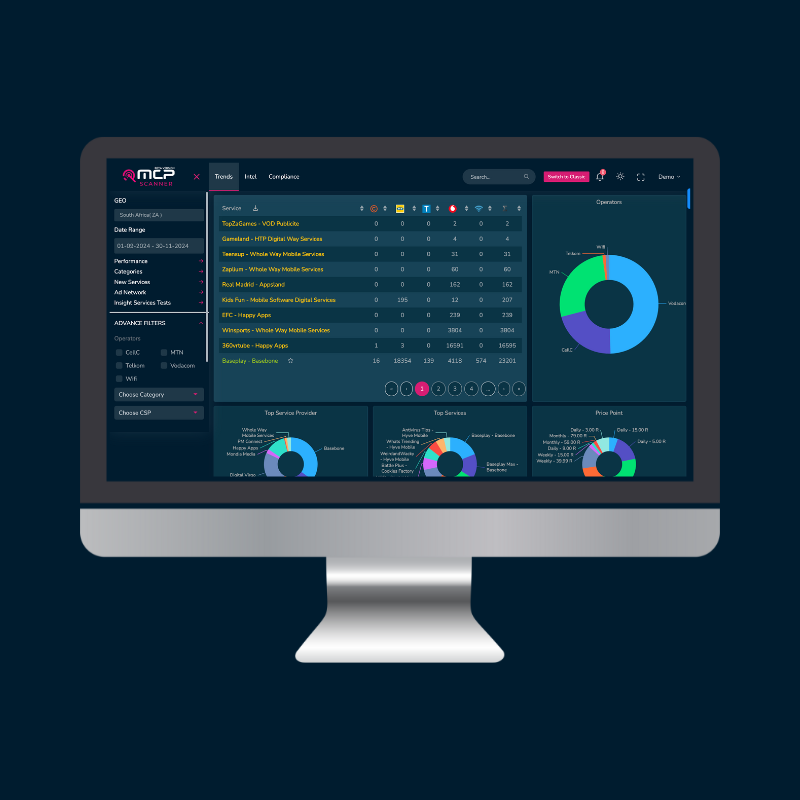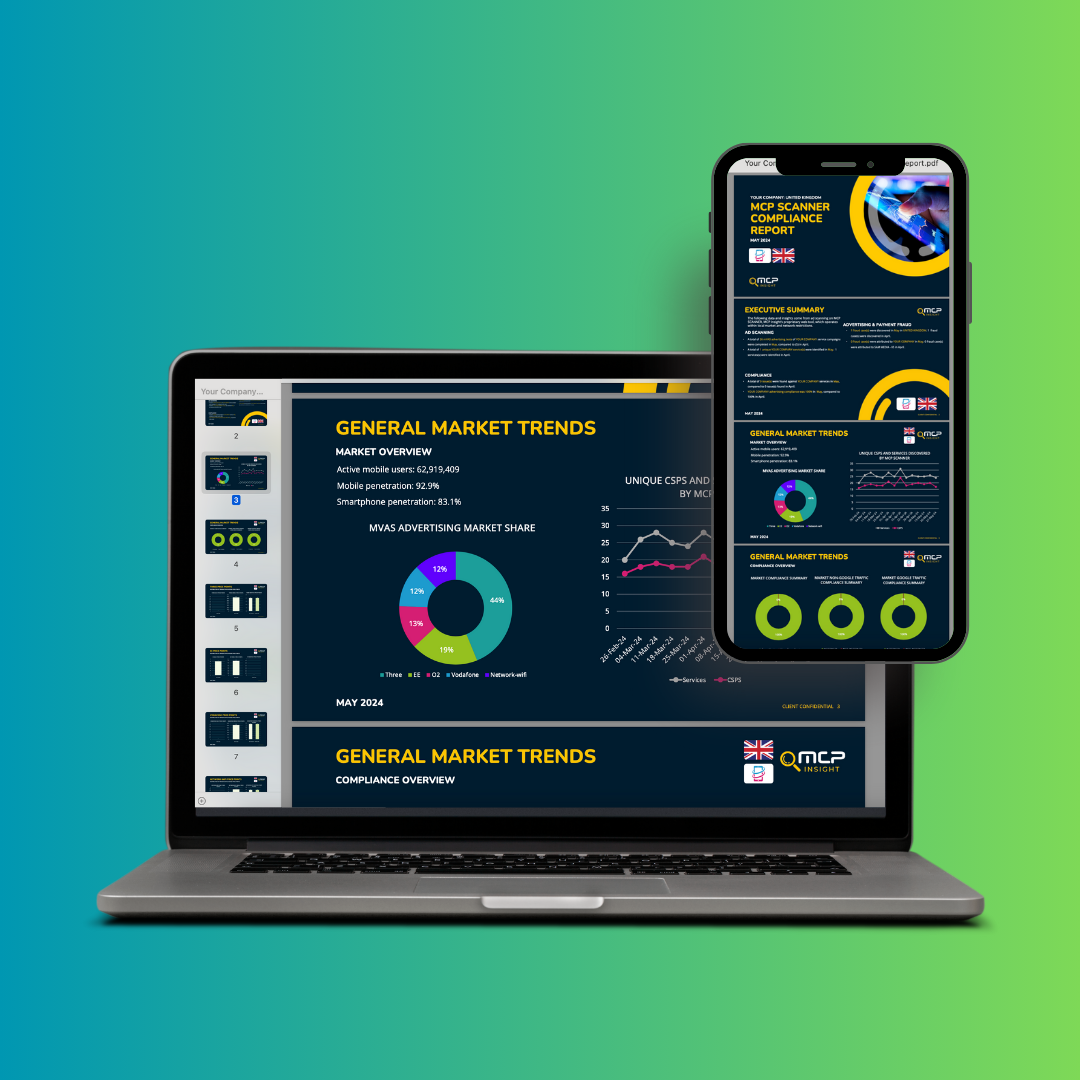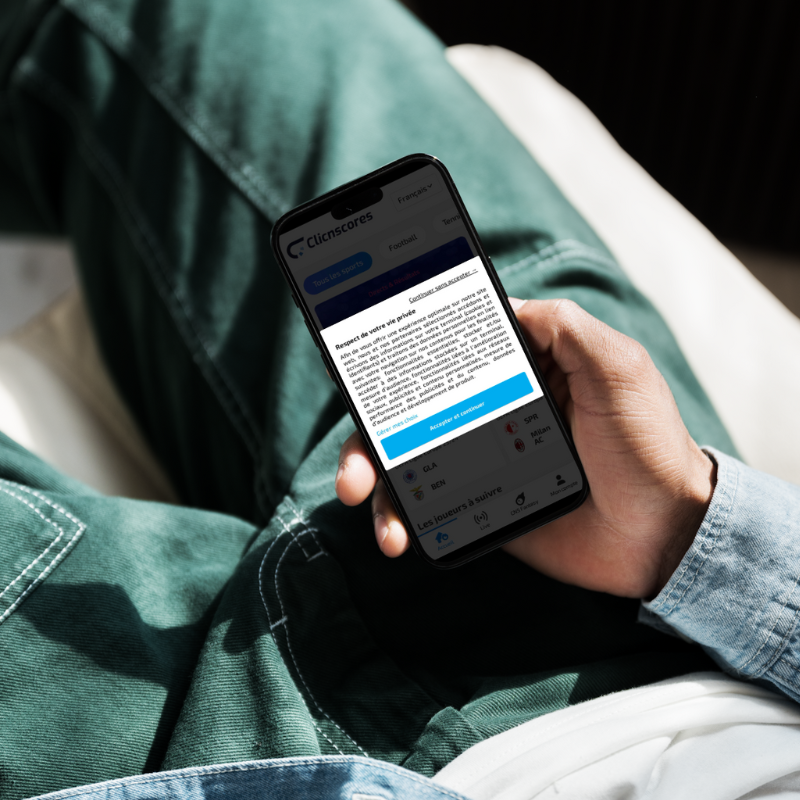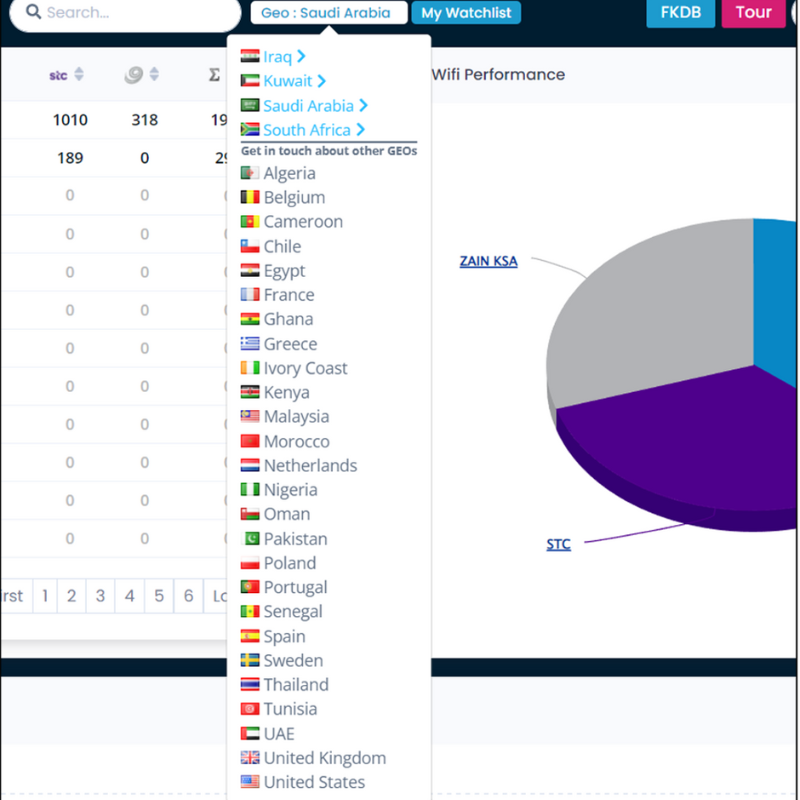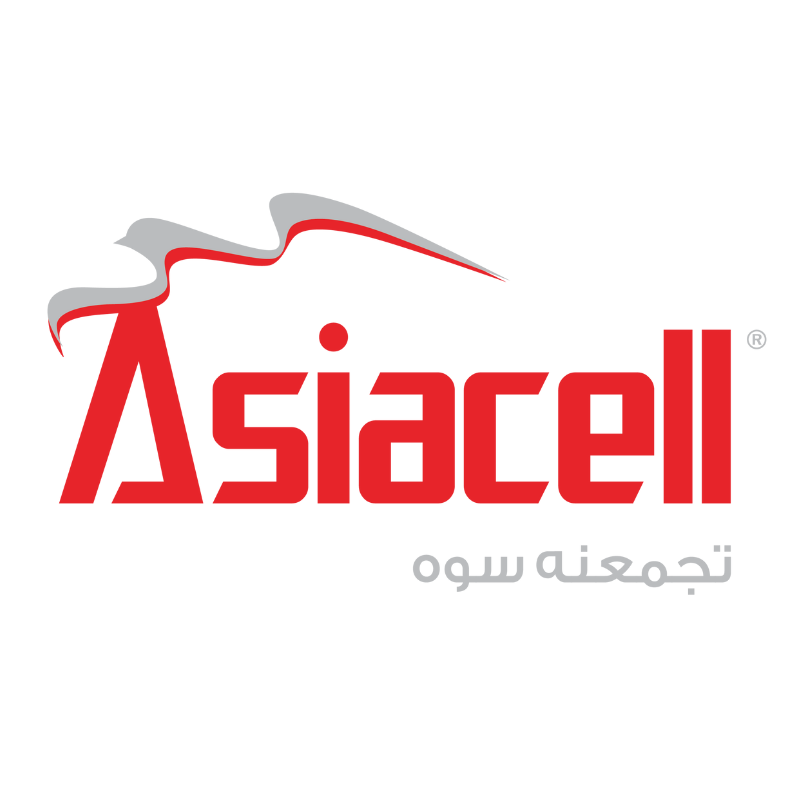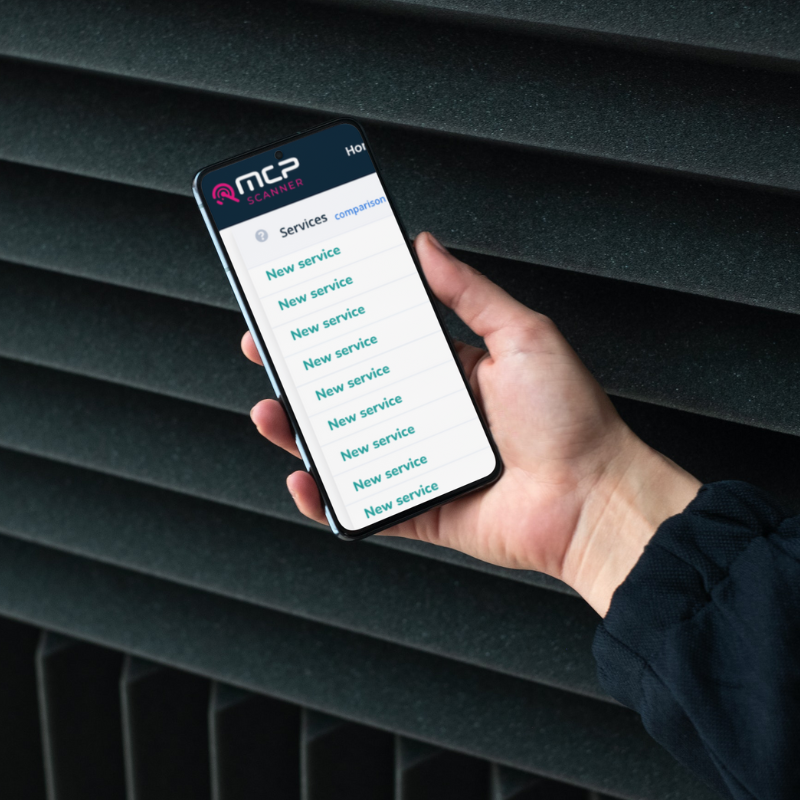Recently, our Special Ops team has observed a trend developing across some EU markets and the UK, potentially impacting the flow of mobile Value-Added Service (mVAS) advertising: the ubiquitous cookie consent pop-up. This seemingly innocuous addition to service landing pages has both positive and negative implications for user engagement, particularly on mobile devices. The addition of cookie consent pop-ups on mVAS advertising flows, comes after several EU data protection supervisory authorities issues new guidance on cookies and how merchants should design cookie banners and obtain cookie consent in a transparent and compliant manner.
Here are some examples of what we’ve discovered via our ad monitoring platform MCP SCANNER:
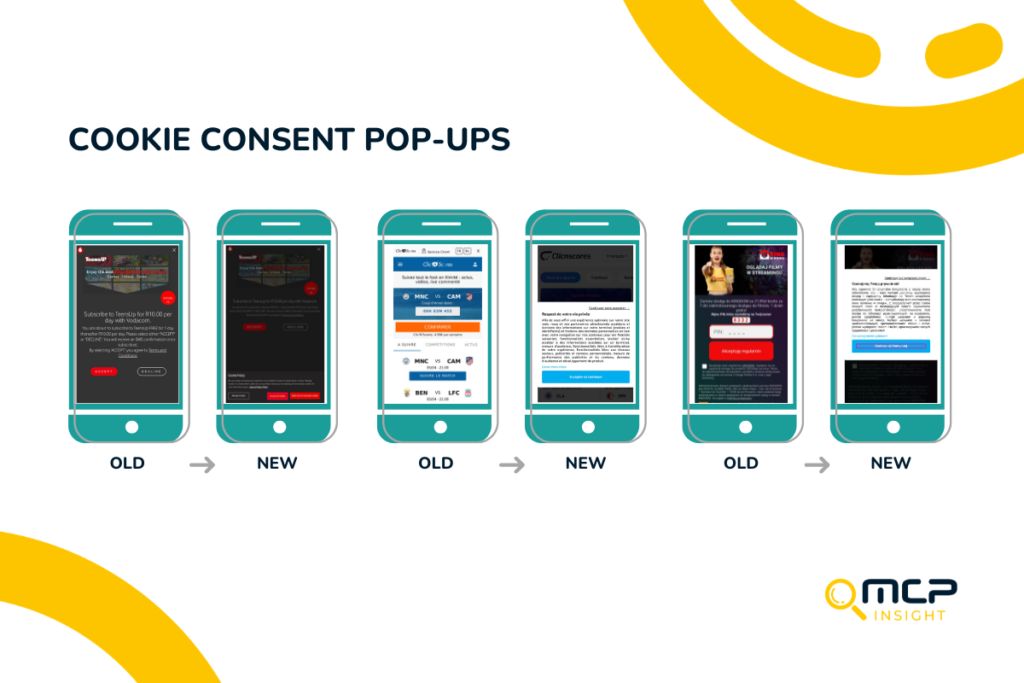
The Double-Edged Sword of Cookie Consent Pop-ups
Cookie consent pop-ups can introduce a double-edged sword effect on engagement, influencing user behaviour in various ways:
Negative Impacts
- Disruption: Cookie consent pop-ups can disrupt the user experience by being intrusive, blocking desired content and interrupting ad flow. This disruption can lead to frustration and a higher bounce rate as users seek uninterrupted experiences.
- Time Consumption: Reading and responding to these pop-ups consume valuable user time, especially if the information presented is dense or confusing. For users seeking quick interactions, this can be particularly frustrating and may deter further engagement.
Positive Impacts
- Transparency & Trust: Well-designed pop-ups that clearly explain cookie usage and offer easy consent options can build trust with users concerned about their privacy. This transparency can potentially lead to increased engagement and loyalty over time.
- Compliance: In many markets, cookie consent pop-ups are mandatory to comply with privacy regulations. Failure to implement them can result in penalties and damage to reputation, making compliance a necessity for businesses operating in the market.
Impact on mVAS Landing Pages
For mVAS landing pages, the impact of cookie consent pop-ups is further magnified due to specific characteristics:
- Disruption is Magnified on Mobile: With smaller screens and touch interfaces, mobile devices exacerbate the intrusive nature of pop-ups. This disruption is particularly detrimental to mVAS landing pages, where users expect quick and seamless experiences.
- Conversion Rates are Crucial: mVAS landing pages typically aim to convert users into subscribers or app downloaders. Any decrease in conversion rates due to cookie consent pop-ups can significantly impact the effectiveness of advertising campaigns.
Minimising Negative Impact with Compliance
To mitigate the negative impact of cookie consent pop-ups, it’s crucial to ensure compliance with local and industry regulations, as well as the carrier’s code of conduct. Here are some strategies:
- Make them small and non-intrusive*: Place pop-ups strategically, such as at the bottom of the screen, and keep their size minimal to minimise disruption.
- Use clear and concise language: Explain cookie usage in simple terms, avoiding legal jargon that may confuse users.
- Offer easy consent options: Enable users to accept or reject cookies with a single click, simplifying the decision-making process.
- Consider a layered approach: Provide a basic summary upfront with a link for users seeking more detailed information, allowing for a balance between transparency and user experience.
Overall, the impact of cookie consent pop-ups depends on their design and implementation. By prioritising user experience and clarity, you can minimise disruption and potentially build trust, leading to better engagement in the long run.
What is your experience of cookie consent pop-ups? If you’d like to discuss trends in the mVAS space and their impact on advertising flows, get in touch with our team. We’re here to collaborate, share insights, and navigate the changing dynamics of mVAS advertising together. Contact us today to start the conversation and stay ahead of the curve in the ever-evolving landscape of mobile advertising and user engagement.
*ensure the placement and size of cookie consent pop-ups are compliant with industry and jurisdictional regulations




















